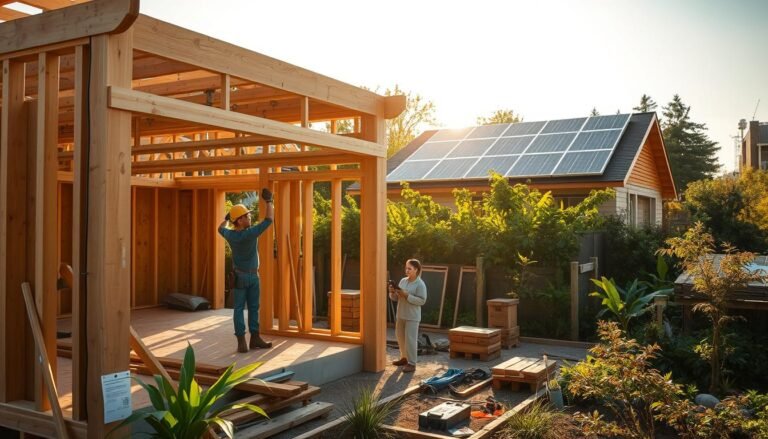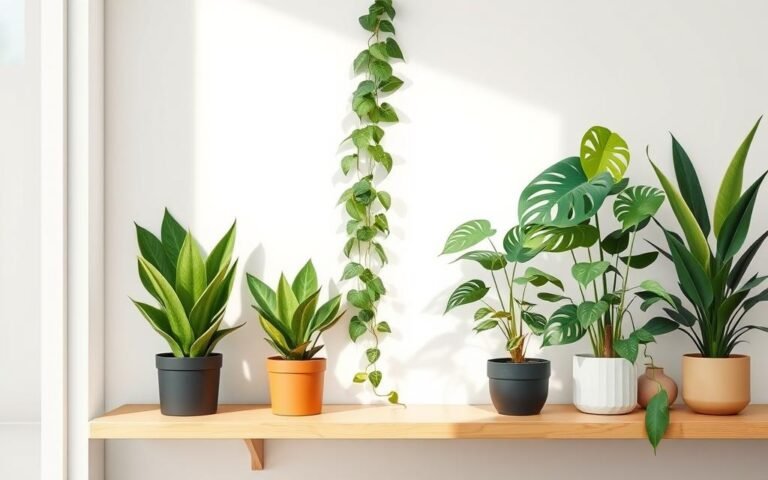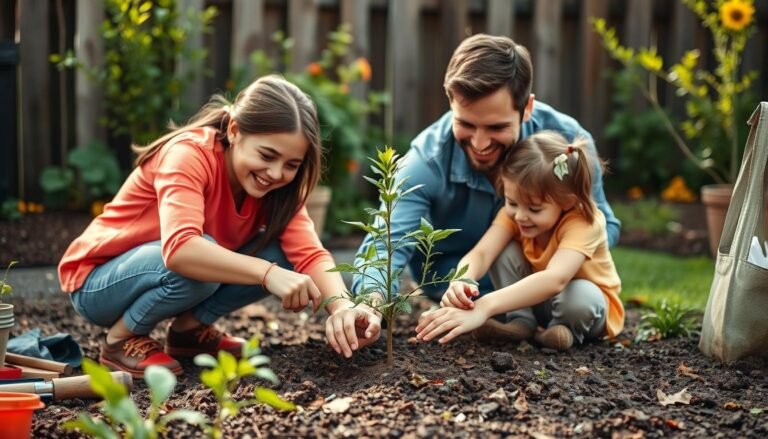Australians have one of the largest single-use plastic footprints per person globally, contributing significantly to environmental pollution.
The plastic crisis in Australia is alarming, with millions of tonnes of plastic waste ending up in landfills and oceans each year. The environmental impact is devastating, affecting marine life and contaminating the food chain.
Switching to eco-friendly alternatives can significantly reduce this plastic waste. Biodegradable options are becoming increasingly popular as people look for sustainable solutions to their daily needs.
Key Takeaways
- Australia has a significant single-use plastic footprint.
- The plastic crisis affects marine life and contaminates the food chain.
- Eco-friendly alternatives can reduce plastic waste.
- Biodegradable options are becoming increasingly popular.
- Sustainable solutions are needed for daily needs.
The Plastic Crisis in Australia
Australia is facing a severe plastic crisis that demands immediate attention and action. The country’s high per-capita consumption of single-use plastics has led to significant environmental degradation.
Current Plastic Consumption Statistics
Australians use around 1.8 billion coffee cups and 1.5 billion coffee lids every year, most of which end up in landfill. This staggering statistic highlights the scale of the problem. Other single-use plastics, such as straws, bags, and packaging materials, also contribute to the issue.
- 1.8 billion coffee cups used annually
- 1.5 billion coffee lids used annually
- High usage of single-use plastic straws and bags
Environmental Impact on Australian Ecosystems
The plastic crisis has a profound impact on Australian ecosystems. Marine life is particularly affected, with many animals ingesting plastic debris or becoming entangled in it. The health of coral reefs and other marine ecosystems is also threatened by plastic pollution.
The impact on marine life is significant, with plastic pollution affecting:
- Marine animals ingesting plastic debris
- Coral reefs suffering from plastic pollution
- Ecosystems being disrupted by plastic waste
Why Biodegradable Product Alternatives Matter
The shift towards biodegradable product alternatives is crucial for Australia’s environmental future. As the country grapples with the challenges of plastic pollution, adopting eco-friendly swaps can significantly mitigate the issue.
Environmental Benefits for Australian Landscapes
Biodegradable materials can break down in a matter of months, unlike traditional plastics which take hundreds of years to degrade. This rapid decomposition reduces the amount of plastic waste in Australian landscapes, protecting native wildlife and preserving natural habitats.
For instance, using biodegradable alternatives for packaging can minimize litter in parks and waterways. A study comparing different materials found that biodegradable options have a significantly lower environmental impact.
| Material | Decomposition Time | Environmental Impact |
|---|---|---|
| Traditional Plastic | Hundreds of Years | High |
| Biodegradable Plastic | A Few Months | Low |
Health Advantages of Reducing Plastic Exposure
Switching to biodegradable swaps also offers health benefits. Reducing exposure to plastics, which can leach chemicals into food and water, contributes to a healthier lifestyle. Biodegradable alternatives minimize the risk of plastic-related health issues, promoting overall well-being.
By choosing eco-friendly alternatives, Australians can reduce their plastic footprint and create a healthier environment. The eco alternatives not only benefit the planet but also enhance personal health.
Understanding Biodegradable Materials
With the plastic crisis in full swing, biodegradable materials are being touted as a savior, but there’s more to it than meets the eye. As consumers, it’s essential to understand what biodegradable means and how it differs from other terms like compostable and bioplastic.
Biodegradable vs. Compostable vs. Bioplastic
The terms biodegradable, compostable, and bioplastic are often used interchangeably, but they have distinct meanings. Biodegradable refers to materials that can break down naturally in the environment. Compostable materials, on the other hand, are biodegradable but specifically require certain conditions to break down into compost. Bioplastic refers to plastics made from biological materials rather than traditional plastics. Not all bioplastics are biodegradable or compostable.
How to Identify Genuinely Eco-Friendly Products
To ensure that products labeled as biodegradable are genuinely eco-friendly, look for certifications from reputable organizations. In Australia, certifications like the Australian Composting Standards or the Bioplastics Certification can provide assurance. Additionally, be wary of greenwashing – when companies make false or misleading claims about their products’ environmental benefits. Reading labels carefully and researching the manufacturer’s environmental policies can help you make informed choices.
By understanding the differences between biodegradable, compostable, and bioplastic, and by being aware of the certifications and potential for greenwashing, Australians can make more informed decisions about the products they use and their impact on the environment.
Popular Biodegradable Product Alternatives in Australia
Sustainable living is on the rise in Australia, with biodegradable products leading the way. As consumers become more environmentally conscious, the demand for eco-friendly alternatives to traditional plastic products has surged.
Australia is home to a growing number of businesses offering innovative biodegradable solutions. These products not only help reduce plastic waste but also promote a more sustainable lifestyle.
Locally-Made Biodegradable Options
Australia boasts a range of locally-made biodegradable products that cater to various needs. From kitchen storage solutions to personal care items, these products are designed to be both functional and environmentally friendly. Some notable examples include:
- Beeswax wraps for food storage
- Bamboo toothbrushes and dental care products
- Compostable food containers and cutlery
For more information on biodegradable alternatives to plastic, visit https://www.implasticfree.com/biodegradable-alternatives-to-plastic/.
| Product | Material | Benefits |
|---|---|---|
| Beeswax Wraps | Beeswax, Cotton | Reusable, Compostable |
| Bamboo Toothbrush | Bamboo, Bioplastic | Biodegradable Handle, Effective Cleaning |
| Compostable Containers | PLA (Polylactic Acid) | Compostable, Reduces Plastic Waste |
Imported Sustainable Alternatives Available in Australia
In addition to locally-made products, Australia also offers a variety of imported sustainable alternatives. These products bring international innovation and quality to the Australian market, further expanding the range of eco-friendly options available to consumers.
Some popular imported biodegradable products include:
- Biodegradable cleaning tools and brushes
- Zero-waste beauty and skincare products
- Sustainable packaging solutions made from mushroom, seaweed, or plant-based materials
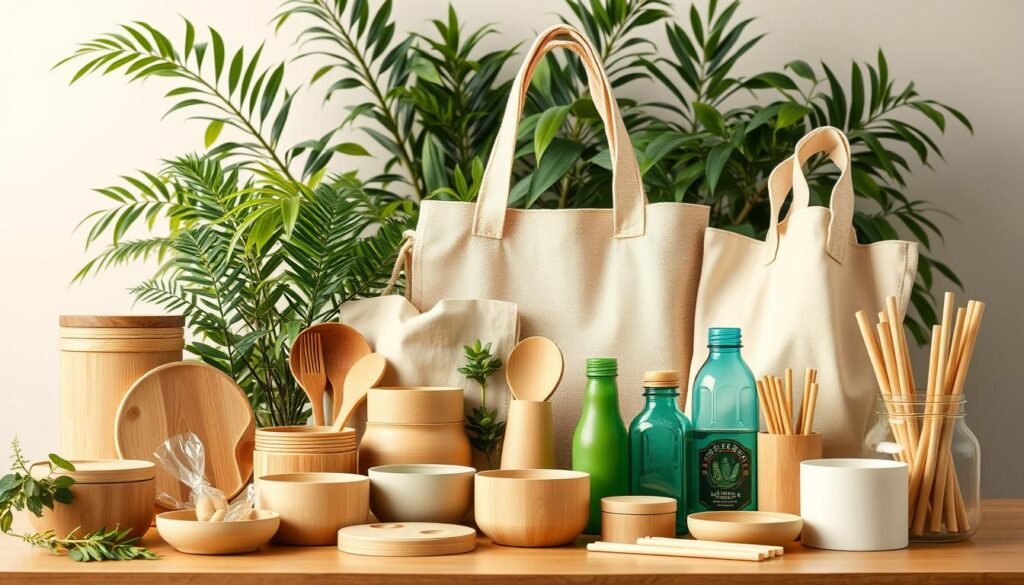
By choosing these biodegradable product alternatives, Australians can significantly reduce their environmental footprint and contribute to a more sustainable future.
Kitchen and Food Storage Solutions
Biodegradable kitchen solutions are revolutionizing the way we store food and cook, making it easier to live plastic-free. The kitchen is a crucial area where individuals can make significant changes to reduce their plastic usage.
By incorporating eco-friendly alternatives, Australians can significantly minimize their environmental footprint. Some of the most effective biodegradable kitchen products include:
Beeswax Wraps and Silicone Food Covers
Beeswax wraps are a durable, compostable alternative to plastic wrap for food storage. They are reusable and can be easily cleaned with cold water and mild soap. Silicone food covers offer another versatile option, providing a flexible and durable way to cover bowls and containers.
Benefits of Beeswax Wraps:
- Eco-friendly and compostable
- Reusable and easy to clean
- Effective for preserving freshness
Bamboo and Wooden Utensils
Bamboo and wooden utensils are sustainable alternatives to plastic kitchen tools. They are biodegradable, durable, and can add a natural touch to your kitchen. Bamboo, in particular, is highly renewable due to its fast growth rate.
| Material | Biodegradable | Durability |
|---|---|---|
| Bamboo | Yes | High |
| Wood | Yes | Medium |
| Plastic | No | Varies |
Compostable Food Containers
Compostable food containers made from plant-based materials are becoming increasingly popular. These containers are designed to decompose in composting facilities, reducing plastic waste in landfills and oceans.
“The shift towards biodegradable kitchen products is not just a trend; it’s a necessary step towards a more sustainable future.” – Eco Warrior Australia
By adopting these biodegradable kitchen and food storage solutions, Australians can make a significant impact on reducing plastic waste and promoting a more sustainable lifestyle.
Bathroom and Personal Care Swaps
Transforming your bathroom routine with eco-friendly alternatives is simpler than you think. By making a few conscious choices, you can significantly reduce your environmental footprint.
Bamboo Toothbrushes and Plastic-Free Dental Care
Bamboo toothbrushes are a popular alternative to traditional plastic toothbrushes. They are biodegradable, reducing plastic waste in landfills and oceans. For more information on making the switch, you can visit Shop Without Plastic for guides on zero-waste bathroom swaps.
Biodegradable Hygiene Products
Biodegradable hygiene products are designed to break down naturally, minimizing environmental impact. These products range from sanitary pads to wet wipes, offering a more sustainable option for personal care.
Zero-Waste Beauty and Skincare Options
Embracing zero-waste beauty and skincare involves choosing products with minimal or biodegradable packaging. This shift not only reduces waste but also promotes a healthier lifestyle through natural ingredients.
As noted by environmental advocates, “Making small changes in our daily routines can have a significant positive impact on the planet.” By incorporating these eco-friendly alternatives into your daily routine, you contribute to a more sustainable future.
Household Cleaning Alternatives
Switching to eco-friendly household cleaning alternatives is a simple yet effective way to reduce our environmental footprint. Traditional cleaning products often contain harsh chemicals that can harm both our health and the environment. By opting for natural cleaning solutions and biodegradable cleaning tools, Australians can maintain a clean home while contributing to a more sustainable future.
Natural Cleaning Solutions in Sustainable Packaging
One of the key aspects of eco-friendly household cleaning is the use of natural cleaning solutions packaged in sustainable materials. Many Australian brands are now offering products that are not only effective but also gentle on the environment. These products come in recyclable or biodegradable packaging, significantly reducing plastic waste.
Some benefits of natural cleaning solutions include:
- Reduced exposure to harsh chemicals
- Lower environmental impact
- Innovative and effective cleaning formulas
Biodegradable Cleaning Tools and Brushes
In addition to natural cleaning solutions, biodegradable cleaning tools and brushes are another crucial component of eco-friendly household cleaning. These tools are made from materials that can easily decompose, reducing the amount of waste that ends up in landfills and oceans.
Examples of biodegradable cleaning tools include:
- Bamboo brushes
- Compostable scrubbers
- Natural fiber cloths
By incorporating these biodegradable cleaning tools into our daily cleaning routines, we can further minimize our environmental impact while keeping our homes clean and hygienic.
Eco-Friendly Packaging Innovations
The shift towards eco-friendly packaging is not just a trend; it’s a necessary step towards reducing plastic waste in our environment. As consumers become more environmentally conscious, businesses are responding with innovative packaging solutions that are both sustainable and effective.
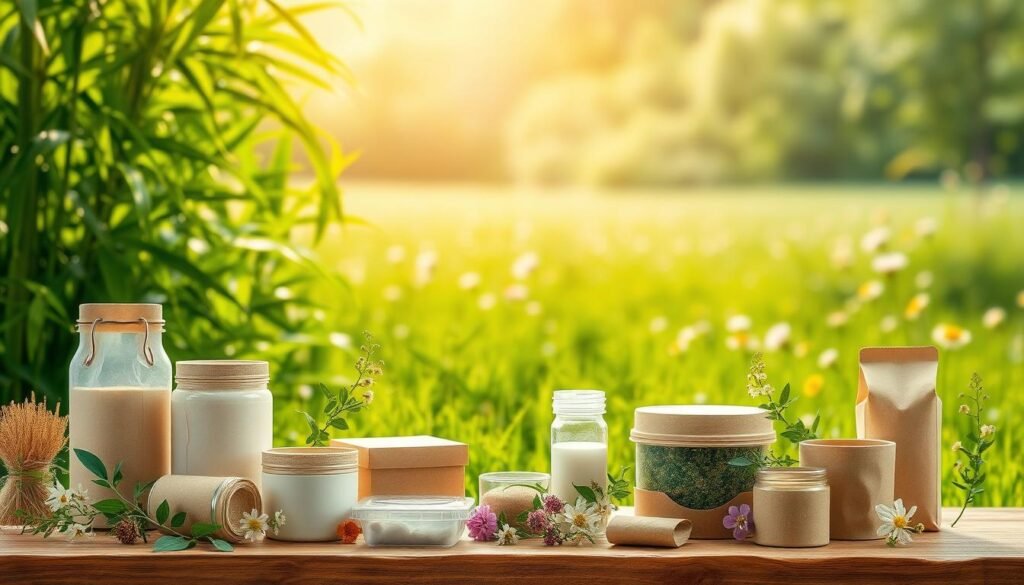
Mushroom, Seaweed, and Plant-Based Packaging
One of the most exciting developments in eco-friendly packaging is the use of biodegradable materials such as mushroom, seaweed, and plant-based composites. These materials are not only compostable but also offer unique properties that can replace traditional plastics. For instance, mushroom-based packaging, also known as mycelium packaging, is grown from fungal roots and can be molded into various shapes and forms.
According to a recent study, seaweed-based packaging is not only biodegradable but also edible and requires minimal water to produce. Plant-based packaging, made from materials like cornstarch or sugarcane, is another viable alternative that is gaining popularity.
| Material | Biodegradable | Compostable |
|---|---|---|
| Mushroom-based | Yes | Yes |
| Seaweed-based | Yes | Yes |
| Plant-based | Yes | Yes |
Australian Businesses Leading the Packaging Revolution
Several Australian businesses are at the forefront of the eco-friendly packaging revolution. Companies like Who Gives A Crap are using bamboo and recycled materials to create sustainable packaging for their products. Another example is Livewell, which offers a range of biodegradable packaging solutions made from plant-based materials.
“We’re passionate about reducing waste and promoting sustainability through our packaging choices. It’s a journey, and we’re committed to making a difference.” –
These businesses are not only reducing their environmental footprint but also inspiring others to follow suit. As the demand for eco-friendly packaging continues to grow, it’s likely that we’ll see even more innovative solutions emerge in the Australian market.
Biodegradable Gardening Products
Australian gardeners are turning to biodegradable alternatives to reduce plastic waste in their gardens. This shift not only benefits the environment but also enhances the sustainability of gardening practices.
Compostable Seed Pots and Garden Tools
Compostable seed pots made from materials like coconut coir or bamboo are becoming popular among gardeners. These pots are not only biodegradable but also enrich the soil as they decompose. Additionally, garden tools made from biodegradable materials are a great alternative to traditional plastic tools.
- Biodegradable seed pots reduce transplant shock
- Compostable materials enrich the soil
- Eco-friendly garden tools minimize environmental impact
Natural Alternatives to Plastic Garden Supplies
Gardeners can now opt for natural alternatives to plastic garden supplies, such as bamboo stakes, wooden plant labels, and biodegradable planters. These alternatives are not only eco-friendly but also add a natural aesthetic to gardens.
By adopting biodegradable gardening products, Australians can significantly reduce their environmental footprint. These products offer a practical and sustainable solution for gardeners looking to make a positive impact.
Sustainable Fashion and Textiles
The Australian fashion scene is witnessing a shift towards sustainability, with brands adopting biodegradable materials. This movement is driven by consumer demand for eco-friendly clothing and textiles that not only reduce environmental impact but also promote healthier fashion practices.
Australian Eco-Fashion Brands
Australia is home to a growing number of eco-fashion brands that are making significant contributions to sustainable fashion. Brands like Albus Lumen and Vege Threads are pioneering the use of biodegradable materials in their clothing lines. These brands are not only reducing the environmental footprint of the fashion industry but also setting new standards for sustainable fashion practices.
Some notable Australian eco-fashion brands include:
- Albus Lumen
- Vege Threads
- Everlane Australia
- Kit Willow’s No1
Biodegradable Clothing Materials and Footwear
Biodegradable clothing materials are revolutionizing the fashion industry by offering alternatives to traditional synthetic fabrics. Materials such as hemp, bamboo, and organic cotton are becoming increasingly popular due to their minimal environmental impact. Additionally, innovative materials like Piñatex, made from pineapple leaf fibers, are being used to create stylish and sustainable footwear.
| Material | Environmental Benefits | Common Uses |
|---|---|---|
| Hemp | Requires less water, no pesticides | Clothing, accessories |
| Bamboo | Fast-growing, biodegradable | Clothing, footwear |
| Piñatex | Utilizes waste pineapple leaves | Footwear, handbags |
Children’s Eco-Friendly Products
With growing concerns about plastic waste, Australian parents are now seeking eco-friendly children’s products. This shift towards sustainability is not only beneficial for the environment but also ensures a healthier upbringing for children by reducing their exposure to harmful plastics and chemicals.
Wooden and Natural Fiber Toys
Wooden and natural fiber toys are becoming increasingly popular as they are biodegradable and non-toxic. Unlike plastic toys, they do not contain harmful chemicals such as BPA or phthalates. Brands like Huon Pine Toys and Aussie Bush Toys are leading the way in creating sustainable, eco-friendly toys that are both fun and educational for children.
Biodegradable Baby Products and Nappies
Biodegradable baby products, including nappies, are a game-changer for environmentally conscious parents. These products are made from sustainable materials that decompose much faster than traditional disposable nappies. Brands such as Biodegradable Nappies offer a range of compostable nappies that are free from chlorine, latex, and other harmful substances.
| Product | Material | Benefits |
|---|---|---|
| Wooden Toys | Sustainable Wood | Biodegradable, Non-Toxic |
| Biodegradable Nappies | Compostable Materials | Environmentally Friendly, Chlorine-Free |
| Natural Fiber Clothing | Organic Cotton, Bamboo | Sustainable, Gentle on Skin |
By choosing eco-friendly children’s products, parents can significantly reduce their environmental footprint while providing their children with a healthier start in life.
Office and School Sustainable Supplies
Australian workplaces and educational institutions are now seeking out sustainable office and school supplies to minimize their impact on the environment. This shift towards eco-friendliness is not just a trend, but a necessary step in reducing our ecological footprint.
Plastic-Free Stationery Options
One of the simplest ways to make your office or school more sustainable is by switching to plastic-free stationery. Options include:
- Recycled paper products, such as notebooks and printing paper
- Bamboo pens and pencils, offering a durable and biodegradable alternative
- Stationery made from natural fibers, like hemp or cotton
These alternatives not only reduce plastic use but also promote a more sustainable lifestyle.
Biodegradable Organizational Tools
In addition to stationery, there are numerous biodegradable organizational tools available. These include:
- Desk organizers made from recycled cardboard or bioplastics
- File holders crafted from sustainably sourced wood
- Biodegradable sticky notes and reminders made from natural materials
By incorporating these sustainable supplies into our daily routines, we can significantly reduce our environmental impact. It’s a step towards a more eco-friendly future for Australian offices and schools.
Pet Care Eco-Alternatives
As pet owners become more environmentally conscious, the demand for eco-friendly pet care products is on the rise in Australia. This shift towards sustainability is not only beneficial for the planet but also promotes a healthier lifestyle for pets and their owners.
Natural Pet Toys and Accessories
Switching to natural pet toys and accessories is a great way to reduce environmental impact. Products made from biodegradable materials like bamboo, recycled paper, and natural fibers are not only eco-friendly but also safe for pets. Many Australian brands are now offering sustainable pet toys that are durable and fun for pets.
Biodegradable Pet Waste Management Solutions
Managing pet waste in an eco-friendly manner is crucial. Biodegradable pet waste bags made from plant-based materials are a great alternative to traditional plastic bags. Additionally, composting pet waste is becoming a popular practice among environmentally conscious pet owners in Australia.
Making the Switch: A Practical Guide for Australians
The shift towards a more sustainable future in Australia starts with making conscious choices about everyday products. As consumers, Australians have the power to drive demand for biodegradable alternatives, reducing the nation’s reliance on plastics.
Starting Your Plastic-Free Journey
Embarking on a plastic-free journey begins with small, achievable changes. Start by identifying areas in your daily routine where plastic use is highest, such as in food storage or personal care. Replace single-use plastics with biodegradable alternatives like beeswax wraps or bamboo toothbrushes. Australians can make a significant impact by making these simple swaps.
Australian Retailers Specializing in Biodegradable Products
Several Australian retailers now specialize in biodegradable products, making it easier for consumers to find sustainable alternatives. Stores like Life Without Plastic and online platforms such as Biopak offer a wide range of eco-friendly products. Shopping at these retailers supports local businesses and promotes sustainable living.
Budgeting for Sustainable Alternatives
While biodegradable products can sometimes be more expensive than their plastic counterparts, there are ways to make the transition budget-friendly. Consider buying in bulk, opting for seasonal or locally sourced products, and repurposing items you already have. Australians can also benefit from making their own cleaning solutions or personal care products using natural ingredients.
By being mindful of spending and making a few simple changes, Australians can adopt a more sustainable lifestyle without breaking the bank.
Challenges and Solutions in Adopting Biodegradable Product Alternatives
While biodegradable products offer a promising solution to the plastic crisis, their adoption is not without its hurdles. As Australians increasingly embrace these alternatives, several challenges need to be addressed to ensure a smooth transition.
Addressing Durability and Performance Concerns
One of the primary concerns with biodegradable products is their durability and performance compared to traditional plastics. For instance, biodegradable packaging materials may not offer the same level of protection as their plastic counterparts. Manufacturers are working to improve these aspects, but consumers must also be educated on the proper use and limitations of these products.
Proper Disposal in the Australian Waste System
Proper disposal is crucial for the effectiveness of biodegradable products. Australians need to understand that these products require specific conditions to break down, such as industrial composting facilities. The table below highlights the differences in disposal methods for various biodegradable materials.
| Material | Disposal Method | Breakdown Time |
|---|---|---|
| PLA (Polylactic Acid) | Industrial Composting | Several Months |
| PBAT (Polybutylene Adipate-co-Butylene Terephthalate) | Industrial Composting | Several Months to Years |
| Starch-Based Bioplastics | Home Composting or Industrial | Variable |
Navigating Greenwashing in the Australian Market
Greenwashing is a significant issue in the biodegradable products market. Companies may misleadingly label products as biodegradable or eco-friendly. Australians must be vigilant and look for certifications from reputable organizations to ensure the products they choose are genuinely sustainable.
By understanding these challenges and implementing effective solutions, Australians can make the most of biodegradable product alternatives and move towards a more sustainable future.
The Future of Plastic-Free Living in Australia
As Australia continues to tackle the plastic crisis, the nation is poised to adopt groundbreaking biodegradable alternatives and stricter plastic regulations. This dual approach is set to revolutionize the way Australians live, work, and interact with their environment.
Upcoming Legislation and Plastic Bans
The Australian government is taking significant steps towards reducing plastic waste through upcoming legislation and plastic bans. New laws are being enacted to limit single-use plastics, a major contributor to the country’s plastic waste. These legislative changes are expected to have a profound impact on both consumer behavior and business practices across the nation.
Emerging Australian Innovations in Biodegradable Materials
Australia is witnessing a surge in innovations related to biodegradable materials, offering promising solutions to the plastic crisis. Companies are developing plant-based packaging, bioplastics, and other sustainable materials that are not only eco-friendly but also functional and aesthetically pleasing. These innovations are crucial for advancing plastic-free living in Australia and setting a precedent for other nations to follow.
Conclusion: Creating a Sustainable Future Through Everyday Choices
Australia’s journey towards a plastic-free future is paved with everyday choices that collectively make a significant impact. By adopting biodegradable product alternatives, individuals can contribute to a more sustainable future.
The benefits of switching to biodegradable products are multifaceted, from reducing plastic waste to promoting eco-friendly practices. As Australians, making conscious choices in daily life can lead to a substantial positive change in the environment.
Every decision to opt for biodegradable product alternatives counts, whether it’s choosing bamboo toothbrushes, beeswax wraps, or compostable food containers. These choices not only reduce plastic consumption but also support sustainable manufacturing practices.
By embracing biodegradable product alternatives, Australians can create a ripple effect that inspires broader change. As the demand for sustainable products grows, so does the potential for a more sustainable future.
The path to a sustainable future is built on the foundation of everyday choices. By making informed decisions and adopting biodegradable product alternatives, individuals can play a crucial role in shaping a more environmentally friendly Australia.

